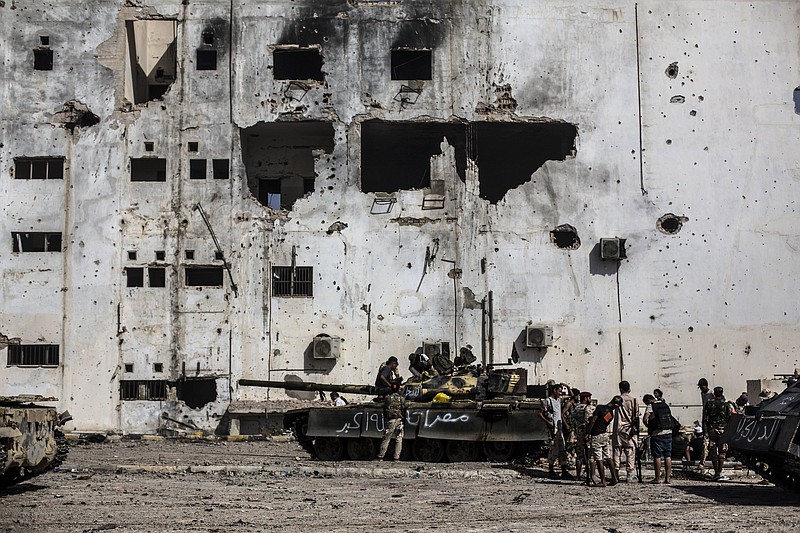GENEVA (AP) - The rival sides in Libya's conflict signed a permanent cease-fire Friday, a deal the United Nations billed as historic after years of fighting that has split the North African country in two. But skepticism over whether the agreement would hold began emerging almost immediately.
The breakthrough, which among other things orders foreign mercenaries out of the country, sets the stage for political talks in November to find a lasting solution to the chaos unleashed after a 2011 NATO-backed uprising toppled and killed longtime dictator Moammar Gadhafi.
Previous diplomatic initiatives to end the conflict have repeatedly collapsed - but the U.N.-brokered deal aims to cement a monthslong lull in fighting and gives a boost to the political process.
"I am honored to be among you today to witness a moment that will go down in history," Stephanie Turco Williams, the top U.N. envoy for Libya who led mediation talks this week, said at the signing in Geneva. She did, however, express some caution, noting that a "long and difficult" road remains ahead.
It's not clear how the cease-fire will be enforced - given the patchwork of militias in Libya - but Williams said armed groups and military units had agreed to return "to their camps" and that the deal would take effect immediately.
Foreign mercenaries will depart "from all Libyan territories land, air and sea" within three months, she added, referring to the thousands of Syrian fighters deployed by Turkey and Russia on opposite sides of the war. The agreement also involves the formation of a joint military force and a way to monitor violations, Williams said. The deal will be sent to the U.N. Security Council.
U.N. Secretary-General Antonio Guterres hailed the cease-fire as a "critical step," but said at a press conference at U.N. headquarters in New York that "there is much hard work ahead."
He urged regional actors to respect the cease-fire provisions and the international community to support Libyans in implementing them, including by upholding the widely flouted U.N. arms embargo.
The U.S. State Department welcomed the agreement, calling it "positive news."
"We understand that this agreement was reached by Libyans alone, on both sides of the conflict, who are taking decisive steps to reassert their sovereignty over Libya," the statement said. "As reported, the agreement demands that all foreign mercenaries and militaries must withdraw from Libya."
Shortly after the announcement of the deal, Turkish President Recep Tayyip Erdogan said it did not appear to be credible - even as he expressed hope all parties would stick to it. "Time will show how long it will last," he added, questioning the list of delegates and whether it would be "correct" for mercenaries to leave so quickly.
Following Libya's descent into chaos, a U.N.-recognized government holds sway in the capital, Tripoli, in western Libya, while the forces of military commander Khalifa Hifter run most of the east and south. Turkey is the main patron of the Tripoli government, while the United Arab Emirates, Russia and Egypt back Hifter. Both sides are also supported by an array of fractious militias, though the administrations often struggle to control them.
Ali Abushahma, a field commander for the administration in Tripoli and the head of its delegation, said: "We have had enough suffering, enough bloodshed."
"I appeal to all Libya: Be one hand," he added, warning of polarization by factions.

